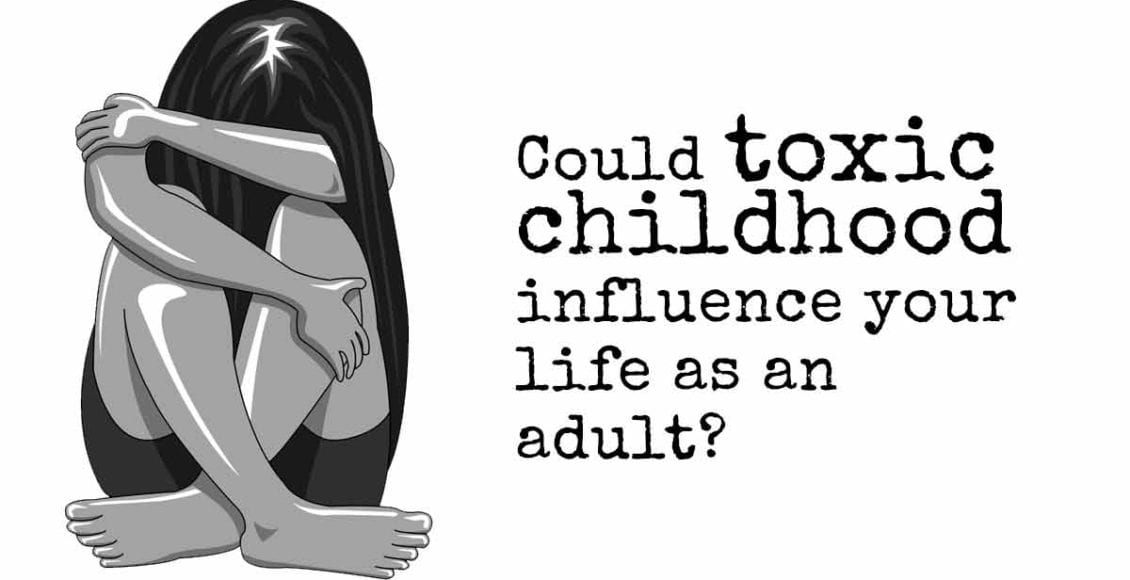Some people claim that it is never too late to have a happy childhood.
It sounds compelling but sadly more often the shadows of our tricky past reach over into adulthood and distort our life in a not so positive way.
Here is how:
1. You are lonely
People who have been through toxic childhood might lack a sense of belonging. They’ve given up all hope to be accepted and understood since they never had that experience as children. This feeling usually goes with self-blame and thoughts like ”I’m just too weird and flawed for anyone to stick around and get to know me”. In fact, allowing someone to know you might feel scary and dangerous. Isolation feels more like home than daring to share yourself.
2. You tolerate toxic relationships
Emotional (and physical) abuse in early childhood leads to the formation of a notion that links pain and love together. So later on, being hurt and humiliated in your intimate relationship may feel as though that’s the way things are supposed to be and what you deserve. Abuse is justified much more easily if you experienced it early on in life.
3. You are not authentic
If I am to quote Batman (which I very often do): ”We all wear two faces. What counts is what they mask”. What inauthenticity usually masks is the fear to show your real face. If, in order to be loved and accepted, you had to pretend to be something you are not (e.g. loving your brother instead of wanting to smother him), then this pretend play became so habitual that you might have lost your true self along the way.
4. You don’t believe in unconditional love
When we are kids, we often get the idea that love comes with strings attached. It’s a kind of bargain, a tit for tat, a transaction that is always carefully calculated, but never given freely. So if you got the idea of love as a scarce resource to be earned, it is difficult later on to believe in your ability to give and receive it unconditionally. You often feel urged to prove your lovability, never taking it for granted.
5. Closeness is difficult for you
Another side of effect of not being loved properly when you were young is how tricky maintaining a relationship may become. Loving and being loved has the potential to take you to a familiarly vulnerable place: the way it used to do many years ago when you desperately loved a parent who was not quite capable of loving you back. The path to connection became so ambiguous and uncertain that you may subconsciously avoid it altogether.
6. You block your feelings
One of the important lessons we learn in childhood is whether we have the right to feel and express our feelings or not. Far too often what we sense is that it is safer to force them back. Grin and bear it (especially boys). It becomes so habitual that later on we may face the difficulty to get in touch with what is happening inside of us or to try compulsively to block it (with alcohol or other ”healthy” strategies).
7. You use harsh self-talk
Some wise soul once said that the way we talk to our children becomes the way they talk to themselves. Some of the marks of a toxic childhood can be recognized through our inner voices. Are they helpful and supporting? Or demeaning and harsh? Excessive self-criticism may signal that we didn’t receive enough tenderness and support during our formative years.
8. You take more responsibility than necessary
When I was a kid I remember being very often guilty for my grandma’s headache. Apart from being a pain in the ass, I had the feeling of having control over other people’s health. Which is not so small a burden for a child to bear. Nowadays I still get that feeling of almightiness: if my partner is grumpy, it must be my fault.
Sometimes it is useful to look back and explore the ways in which we were parented because more often than not they hide the key to some of our problems as adults. Trying to disentangle the confusing threads of past experiences may help us to choose healthier patterns of connection with ourselves and the world around.



